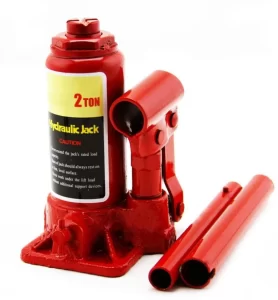“Vehicle maintenance”
Mobility is our enemy! An enemy who challenges us at every turn, and keeps us on toes! And that’s part of the fun!
Mobility is the natural cause of vehicle wear and tear and mechanical breakdowns. Unlike a brick and mortar studio, our vehicles are constantly battling the elements and the miles.
That’s why a disciplined approach to vehicle maintenance is crucial. Just like a fire truck needs to be ready at a moment’s notice, your towing vehicle and mobile studio trailer have to be in top shape to ensure smooth operations and project success.

This section can be separated into two parts:
Towing vehicle (Truck)
Mobile studio (Trailer)

Towing Vehicle (Truck):
Regular maintenance is key here. Stick to the manufacturer’s recommended schedule for oil changes, tire rotations, and other routine checks. Check the electronic brake system in the truck for proper operation. Whether you own the truck or hire an owner/operator, stay informed about the truck’s condition and service history.
Mobile Studio (Trailer):
Preventive Maintenance Mindset:
Think “always ready” – just like a fire truck! Aim to be prepared for any job, anywhere. Here’s a checklist to get you started:
- Tires & Lubrication:

tire, gage, mileage
- Maintain proper tire inflation and road-worthy condition.
- Ensure your spare is in good shape.
- Visually check tires before each trip.
- Keep a mobile mechanic’s contact information handy.
- Track trailer mileage/hours. Consider a Trailer Life Meter or Hub Odometer to monitor lubrication, tire, and brake service intervals
- Air Conditioning:

Dyson Fan
- Keep your A/C in good running condition AND invest in a good dual heating/cooling fan for backup. I recommend a Dyson fan because it’s a air purifier as well.
- Refer to your manufacturer’s manual for routine maintenance.
- Consider ductless A/C systems like Fujinon for their low maintenance and rugged build.
- Jacks:
- Main Front Jack: Invest in a high-quality jack. A reliable

fuse primary jack minimizes the need for auxiliary jacks. Maintain its battery and keep jumper cables readily available. Have spare fuses available.
- Auxiliary/Emergency Jacks: Ensure these can support your

Auxiliary Jack trailer’s weight and are in good working order. Consider carrying several smaller jacks (4000-6000 lbs capacity each) for backup.
- Stabilizing Jacks: These provide support, not lifting. Ensure they’re secure to prevent floor instability. Use rubber mats between all jack contact points and the ground to minimize low-hum.
- Lubrication & Brakes:
- Both truck and trailer brakes work together. Have the electronic brake system checked regularly.
- Inspect brake pads for wear and tear.
- Regularly check and lubricate/repack wheel hubs when needed.
-

spare key box Spare Keys:
- Consider a lockbox with a combination code for easy access to spare keys.

- Generator Fuel:
- Ensure generators and gas tanks are full before each session.
Remember: These are general guidelines. Adapt and expand this list based on your specific production needs.